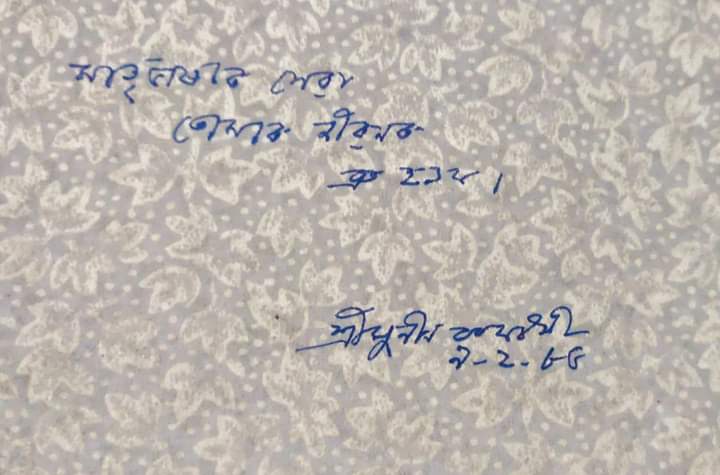About the man
A distinguished mind of our times, Munin Barkotoki (1915 – 1993) was a man of wide-ranging curiosity and exceptionally varied interests. His passions included literature, journalism, theatre, film, music, painting, sports and - of course - politics. Though his literary output was sparse - comprising almost wholly of just twelve stories and sketches, five poems or pastiches, a one-act play, sundry essays, notes, belles-lettres, reviews, letters to the editor and a book of biographical studies (Bismrita Byatikram) all published over a long span of six decades -- Barkotoki exerted a quiet but effective influence on the literary scene in Assam in his role as a conscientious man of letters open to new ideas and experiments. A liberal humanist to the core, he steered clear of any doctrinaire ideology but prized freedom and democracy above everything. Deeply contemplative, yet warm-hearted and convivial, he lived a rich inner life untainted by any mundane quest for glory, power or profit.


While he was born in Jorhat, he spent most of his life in Guwahati, with earlier stints at Calcutta, Dacca and Shillong. He was the younger son of Raisaheb Durgadhar Barkotoki, then Divisional Inspector of Schools. His maternal great grandfather was Anandaram Dhekial Phukan (1829-59), pioneer of the nineteenth century Assamese renaissance. In 1959, Munin Barkotoki married Renuka Devi Barkataki, a well known politician and social worker of the state.
Barkotoki took to literary journalism early on in his career and very quickly became an eminent critical journalist of his time. As a theatre and drama critic he made a lasting impact on the contemporary cultural scene of Assam. Munin Barkotoki is also well known for his contributions to the correspondence columns of both the local and national press. Moreover, he wrote diaries regularly, although his notoriously bad handwriting has made it very difficult to decipher them. To see a sample of his handwriting, click here. He also had an abiding interest in music and was very fond of Rabindra Sangeet in particular. Click here for a short clip of one of his favourite songs.


In his official career he worked in the Publicity Department, Government of Assam and later as Information Officer in the Press Information Bureau, Govt. of India. He retired as News Editor of AIR in 1970. After retirement he taught in the Journalism department of Gauhati University for some years.
Barkataki's love for his mother tongue Assamese and his absolute conviction that the language would survive only if the younger generation learn to love and cherish it can be seen in his words he wrote in 1985 to Ruprekha Goswami, then a young college student and budding writer.
And he tried to encourage not only those who came to seek his blessings but also unknown young writers whose poems and stories he would read in newspapers and magazines. When he read something that he felt was good, Barkataki would write postcards to unknown writers congratulating them and encouraging them to continue with their creative efforts.

In his later years he suffered from chronic insomnia and extended bouts of depression. Barkotoki breathed his last on 6th November 1993 at his residence at Panchabati, Guwahati. His wife, Renuka Devi Barkataki, passed away on 14th August 2017 leaving behind their only daughter, Meenaxi.
For his biography written by Nagen Saikia, [Pragyadhikari Munin Barkotoki]
For a concise yet comprehensive biography in Assamese written by Binoy Mohan Saikia click here.
A film titled ‘Living in the Mind: the world of Munin Barkotoki’ [Assamese title ‘Aprakasor Bedona’] was produced as part of the Munin Barkataki Birth Centenary celebrations. The 57 minute long biopic is directed by Prabin Hazarika and features Rupam Barua in the title role.
[With inputs from the 'Foreword' written by Ranjit Kumar Dev Goswami to A Munin Barkotoki Miscellany (1998, Guwahati: Book Hive)]